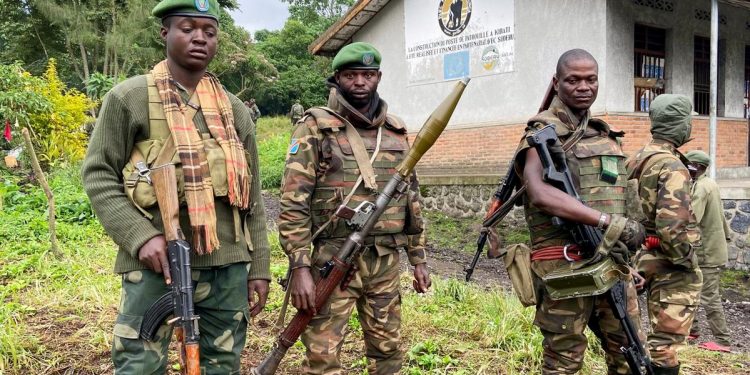The M23 rebel group, backed by Rwanda, has threatened to advance on Bukavu, the capital of South Kivu province, as fighting intensifies in eastern Democratic Republic of Congo (DRC).
The warning comes after weeks of escalating violence that saw the rebels capture Goma, the largest city in the region, at the end of January.
A takeover of Bukavu would mark a significant territorial expansion for M23, further weakening the Congolese government’s hold on the region.
The conflict has raised fears of a broader war, with Burundian forces supporting the Congolese army while reports indicate increased Rwandan military presence at the border.
Although the M23 had previously announced a unilateral ceasefire, regional leaders have urged direct negotiations between the rebels and President Félix Tshisekedi’s government.
However, the ruling UDPS party has rejected such talks, insisting that any discussions must take place within a broader peace framework led by the East African Community (EAC).
Despite their threats, M23 forces have not made significant advances since capturing the mining town of Nyabibwe last week. However, heavy shelling along the frontline was reported on Tuesday morning, according to military, rebel, and local sources.
“The situation in Bukavu is deteriorating dangerously. Our people are being killed and looted,” said Lawrence Kanyuka, spokesperson for the rebel alliance that includes M23. He warned that if the violence continued, the rebels would take action to “eradicate the threat at its source.”
Meanwhile, Congolese security forces are struggling to maintain order in South Kivu. Cases of looting and violence by undisciplined soldiers have been reported, prompting a military crackdown.
On Tuesday, a military court in Bukavu announced that 272 detained soldiers and pro-government militia members would face charges, including looting and murder.
The conflict, which has displaced over one million people since early 2022, continues to cause a humanitarian crisis. The United Nations reported a fragile calm in Goma, where some displaced civilians have begun to leave camps amid uncertainty about their safety.
Aid organizations have expressed concerns that an unplanned dismantling of displacement sites could lead to the loss of critical humanitarian infrastructure.
With tensions rising and multiple regional players involved, fears are growing that eastern Congo could once again become the epicenter of a larger regional war, echoing the deadly conflicts that plagued the region between 1996 and 2003.









